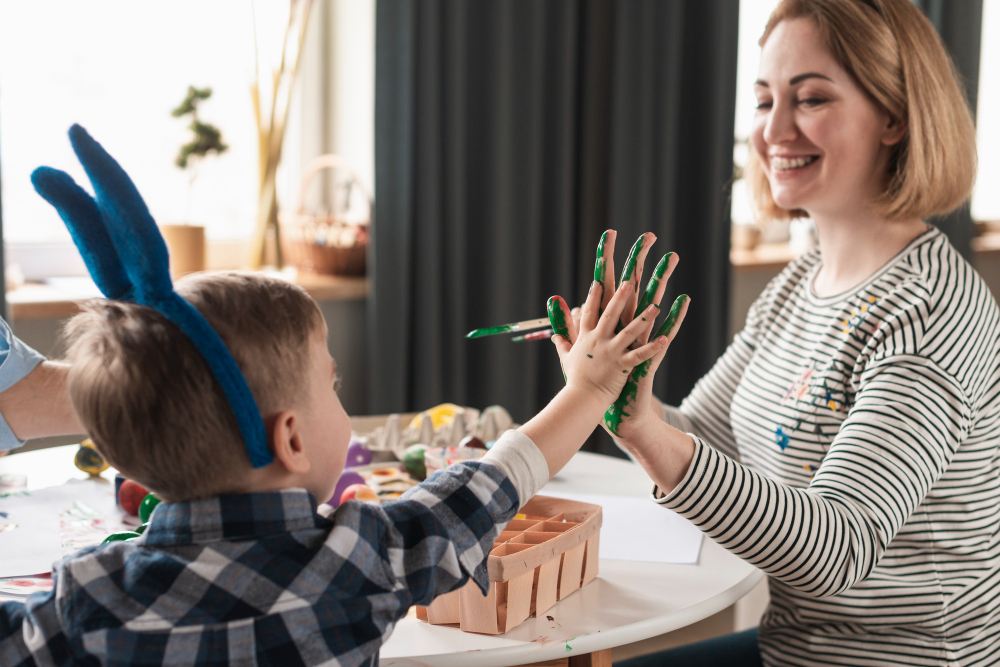


Down syndrome is a genetic condition that affects cognitive development, physical health, and social skills. While there is no “cure,” early intervention, therapy, and tailored support significantly improve quality of life, independence, and social integration.
Every individual with Down syndrome has unique strengths. With the right support, they can lead fulfilling and independent lives. Contact us to learn more about available treatments and interventions.
✔ Developmental Assessments – Identifying strengths and areas for support.
✔ Individualized Education Plans (IEPs) – Structured learning strategies for cognitive and social development.
✔ Parental Guidance & Family Support – Helping families understand and navigate developmental milestones.
✔ Enhancing communication skills, articulation, and vocabulary.
✔ Supporting nonverbal communication through visual aids and sign language.
✔ Encouraging social interactions and confidence in expressing needs.
✔ Improving motor skills, balance, and coordination.
✔ Strengthening muscles to enhance mobility and independence.
✔ Developing daily living skills (dressing, eating, hygiene).
✔ Managing frustration, emotional regulation, and social adaptability.
✔ Encouraging problem-solving and decision-making skills.
✔ Using Applied Behavior Analysis (ABA) and Cognitive Behavioral Therapy (CBT) for structured learning and adaptive behavior.
✔ Regular health check-ups to monitor heart health, thyroid function, and overall well-being.
✔ Nutritional guidance to support healthy growth and prevent obesity-related risks.
✔ Sleep and sensory integration support for better daily functioning.
✔ Encouraging participation in group activities, education, and employment programs.
✔ Building self-confidence and independence through structured routines.
✔ Supporting caregivers and families through counseling and peer networks.
It's essential to feel comfortable and understood by your therapist. If you don't feel a connection, it's okay to discuss your concerns.
It's essential to feel comfortable and understood by your therapist. If you don't feel a connection, it's okay to discuss your concerns.
It's essential to feel comfortable and understood by your therapist. If you don't feel a connection, it's okay to discuss your concerns.
It's essential to feel comfortable and understood by your therapist. If you don't feel a connection, it's okay to discuss your concerns.
It's essential to feel comfortable and understood by your therapist. If you don't feel a connection, it's okay to discuss your concerns.

I can't thank my therapist enough for their compassionate approach. They helped me process my trauma in a safe environment, and I've seen significant improvements in my mental health.
Jessica L. Co.Founder
I can't thank my therapist enough for their compassionate approach. They helped me process my trauma in a safe environment, and I've seen significant improvements in my mental health.
Jessica L. Co.Founder

Copyright © 2025 All Rights Reserved.
I can't thank my therapist enough for their compassionate approach. They helped me process my trauma in a safe environment, and I've seen significant improvements in my mental health.
Jessica L. Co.Founder